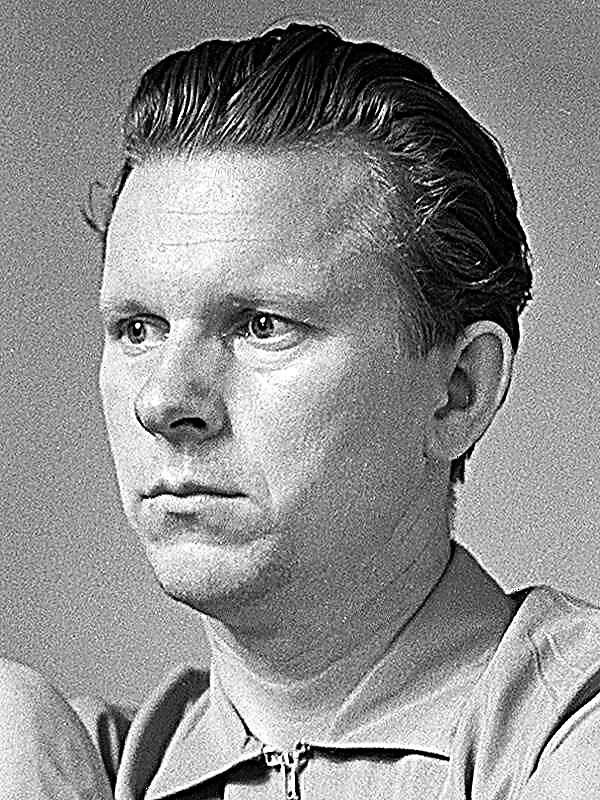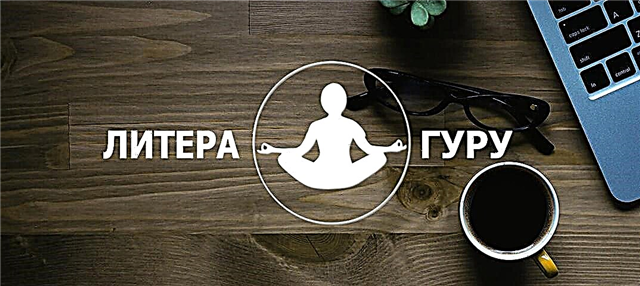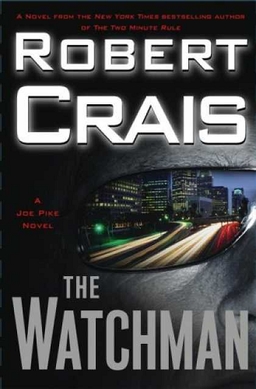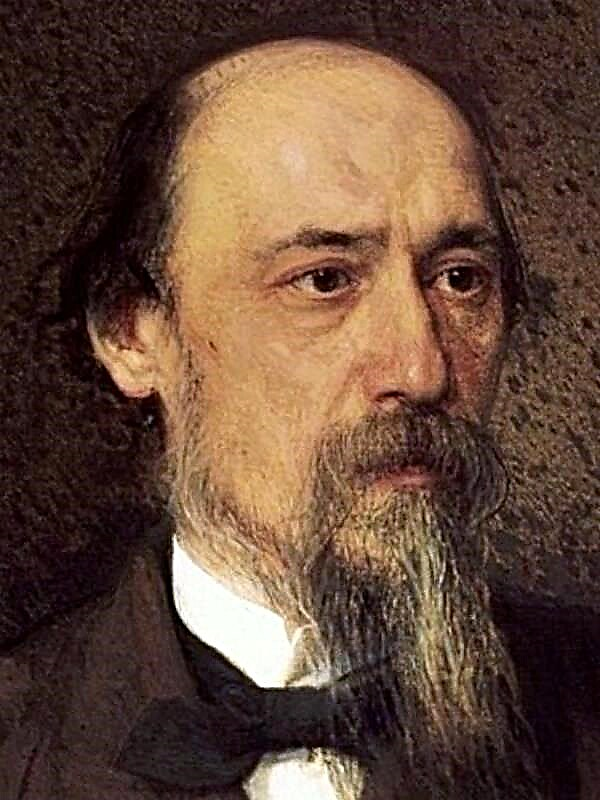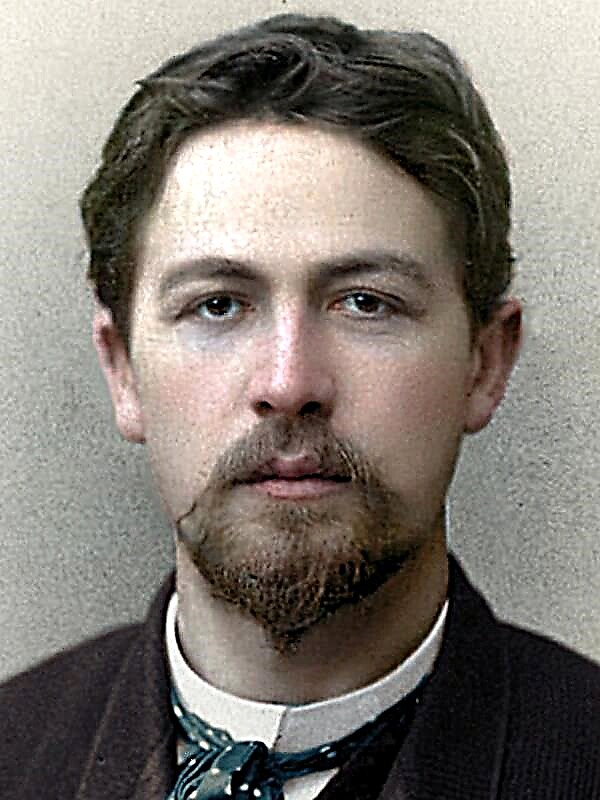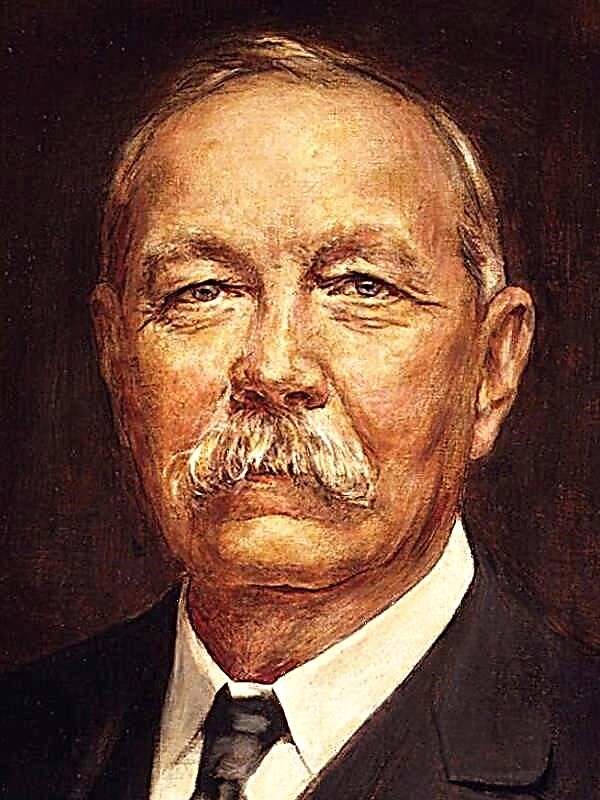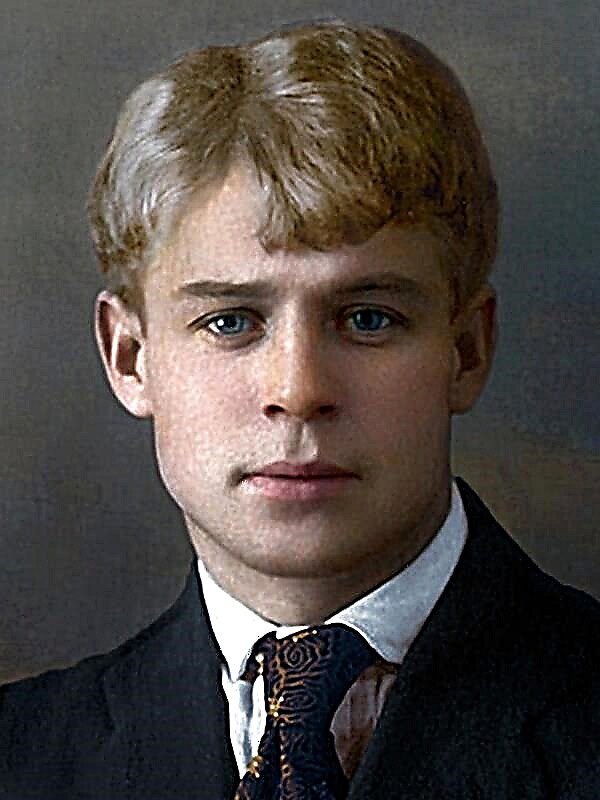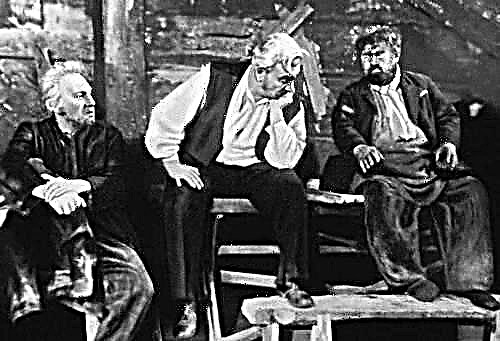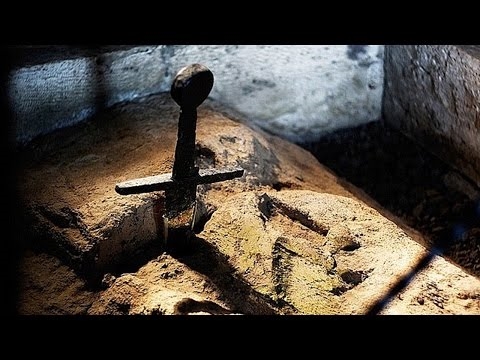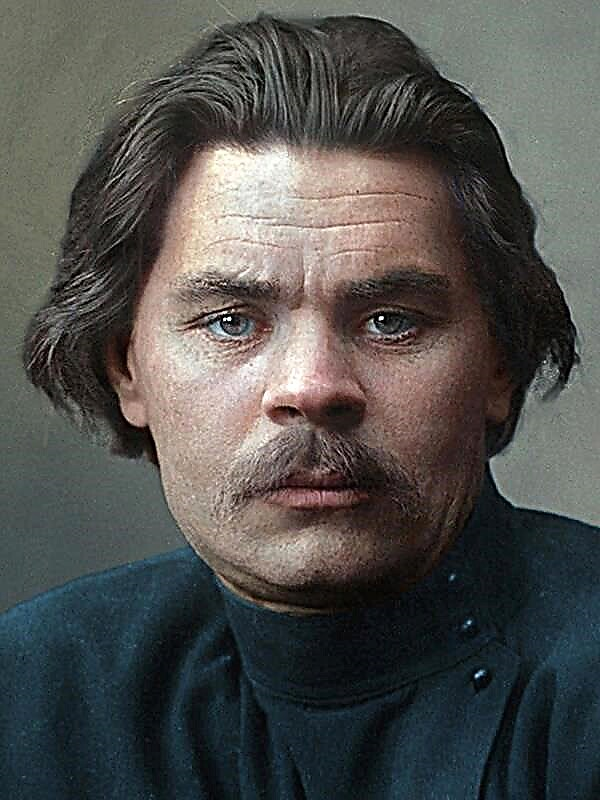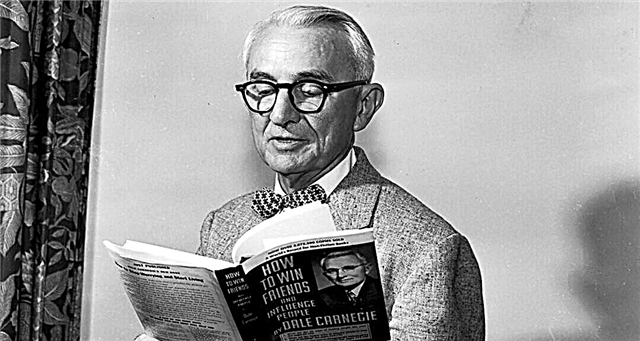Volume One
Petersburg, summer of 1805. At evening, maid of honor Sherer is present among other guests Pierre Bezukhov, the illegitimate son of a wealthy nobleman, and Prince Andrei Bolkonsky. The conversation is about Napoleon, and both friends are trying to protect the great man from the convictions of the hostess of the evening and her guests. Prince Andrei is going to war because he dreams of a glory equal to the glory of Napoleon, and Pierre does not know what to do, he takes part in the feasts of St. Petersburg youth (here Fedor Dolokhov, a poor but extremely strong-willed and decisive officer, occupies a special place); Pierre was expelled from the capital for yet another mischief, and Dolokhov was demoted to soldier.
Further, the author takes us to Moscow, to the house of Count Rostov, a kind, hospitable landowner, who organizes a dinner in honor of the name day of his wife and youngest daughter. A special family structure unites the parents of Rostovs and children - Nikolai (he is going to war with Napoleon), Natasha, Petya and Sonya (a poor relative of the Rostovs); only the eldest daughter, Vera, seems alien.
The Rostovs continue the holiday, everyone is having fun, dancing, and at this time in another Moscow house - at the old Count Bezukhov - the master is at death. The intrigue begins around the will of the count: Prince Vasily Kuragin (St. Petersburg courtier) and three princesses - all of them are distant relatives of the count and his heirs - are trying to steal a briefcase with a new Bezukhov testament, according to which Pierre becomes his main heir; Anna Mikhailovna Drubetskaya, a poor lady of an aristocratic old family, selflessly devoted to her son Boris and everywhere seeking protection for him, makes it difficult to steal a briefcase, and Pierre, now Count Bezukhov, is in a huge fortune. Pierre becomes his man in the light of St. Petersburg; Prince Kuragin is trying to marry him to his daughter - the beautiful Helen - and succeeds in this.
In the Bald Mountains, the estate of Nikolai Andreevich Bolkonsky, the father of Prince Andrei, life goes on long ago; the old prince is constantly busy - he writes notes, then gives lessons to his daughter Marya, then he works in the garden. Prince Andrey arrives with his pregnant wife Lisa; he leaves his wife in his father's house, and he goes to war.
Autumn 1805; The Russian army in Austria takes part in the campaign of the allied states (Austria and Prussia) against Napoleon. Commander-in-Chief Kutuzov does everything possible to avoid the participation of the Russians in the battle, - at the viewing of the infantry regiment, he draws the attention of the Austrian general to the poor uniform (especially shoes) of Russian soldiers; up to the battle of Austerlitz, the Russian army retreats to unite with the allies and not accept the battle with the French. So that the main forces of the Russians could retreat, Kutuzov sends a four-thousand detachment under the command of Bagration to detain the French; Kutuzov manages to conclude a truce with Murat (the French marshal), which allows him to gain time.
Junker Nikolai Rostov serves in the Pavlograd hussar regiment; he lives in an apartment in a German village where a regiment stands, along with his squadron commander, captain Vasily Denisov. One morning, Denisov lost his wallet with money - Rostov found out that the lieutenant Telyanin had taken the wallet. But this misdemeanor of Telyanin casts a shadow over the entire regiment - and the regiment commander demands that Rostov acknowledge his mistake and apologize. Officers support the commander - and Rostov gives in; he does not apologize, but refuses his charges, and Telyanin is expelled from the regiment due to illness. Meanwhile, the regiment goes on a campaign, and the baptism of fire of the junker occurs during the crossing of the Ens River; hussars should cross the last and set fire to the bridge.
During the Battle of Shengraben (between Bagration’s detachment and the vanguard of the French army), Rostov was wounded (a horse was killed underneath, and he was concussed in the fall); he sees the approaching French and “with the feeling of a hare running away from the dogs”, throws a gun at the Frenchman and runs.
For participation in the battle Rostov was promoted to cornet and awarded the soldier George Cross. He arrives from Olmuts, where, preparing for the show, the Russian army camps in the Izmailovsky regiment, where Boris Drubetskoy is, to see his childhood friend and pick up letters and money sent to him from Moscow. He tells Boris and Berg, who is lodging with Drubetskoy, the story of his wound - but not as it actually was, but as they usually tell about cavalry attacks ("how he chopped left and right," etc.) .
During the show, Rostov feels a sense of love and adoration for Emperor Alexander; this feeling only intensifies during the Battle of Austerlitz, when Nicholas sees the king - pale, crying from defeat, alone in the middle of an empty field.
Prince Andrew, right up to the Battle of Austerlitz, lives in anticipation of the great feat he is destined to accomplish. He is annoyed by everything that is discordant with this feeling of his - and the trick of the mocking officer Zherkov, who congratulated the Austrian general on another defeat of the Austrians, and the episode on the road when the medicinal wife asks to intervene for her and Prince Andrei encounters an overlooking officer. During the Battle of Shengraben, Bolkonsky notices Captain Tushin, a "small stooped officer" with a non-heroic appearance, commanding a battery. The successful actions of Tushin’s battery ensured the success of the battle, but when the captain reported to Bagration about the actions of his gunners, he was more timid than during the battle. Prince Andrei is disappointed - his idea of the heroic does not fit either with the behavior of Tushin or with the behavior of Bagration himself, who essentially did not order anything, but only agreed with what the adjutants and commanders were offering him.
On the eve of the Battle of Austerlitz, there was a military council at which Austrian General Weyrother read the disposition of the upcoming battle. During the council, Kutuzov openly slept, seeing no good in any disposition and foreseeing that tomorrow's battle would be lost. Prince Andrew wanted to express his thoughts and his plan, but Kutuzov interrupted the council and invited everyone to disperse. At night, Bolkonsky thinks of tomorrow’s battle and his decisive participation in it. He wants fame and is ready to give everything for it: "Death, wounds, loss of a family, I’m not afraid of anything."
The next morning, as soon as the sun came out of the fog, Napoleon gave a sign to start the battle - it was the day of the anniversary of his coronation, and he was happy and confident. Kutuzov, on the other hand, looked gloomy - he immediately noticed that confusion began in the Allied forces. Before the battle, the emperor asks Kutuzov why the battle does not begin, and hears from the old commander-in-chief: "Therefore, I don’t start, sovereign, that we are not in the parade and not on Tsaritsyno Luga." Very soon, the Russian troops, having discovered the enemy much closer than they thought, upset their ranks and flee. Kutuzov demands to stop them, and Prince Andrey rushes forward with a banner in his hands, dragging a battalion with him. Almost immediately he was wounded, he falls and sees a high sky above him with quietly crawling clouds on it. All his previous dreams of glory seem to him insignificant; insignificant and small seems to him and his idol, Napoleon, circling the battlefield after the French completely defeated the allies. “Here is a beautiful death,” Napoleon says, looking at Bolkonsky. After making sure that Bolkonsky is still alive, Napoleon orders him to be taken to the dressing station. Among the hopeless wounded, Prince Andrei was left in the care of the inhabitants.
Volume Two
Nikolai Rostov comes home on vacation; Denisov rides with him.Rostov everywhere - both at home and with friends, that is, all of Moscow - was accepted as a hero; he draws closer to Dolokhov (and becomes one of his seconds in a duel with Bezukhov). Dolokhov makes an offer to Sonya, but she, in love with Nikolai, refuses; at a farewell banquet arranged by Dolokhov for his friends before leaving for the army, he defeats Rostov (apparently not quite honestly) for a large sum, as if avenging his refusal for Sonin.
The Rostovs house has an atmosphere of love and fun, created primarily by Natasha. She sings and dances beautifully (at a ball at Yogel, a dance teacher, Natasha dances a mazurka with Denisov, which causes general admiration). When Rostov returns home in a depressed state after losing, he hears Natasha’s singing and forgets about everything — about losing, about Dolokhov: “all this is nonsense‹ ... ›but it’s real.” Nicholas admits his father a loss; when he manages to collect the necessary amount, he leaves for the army. Denisov, admired by Natasha, asks her hands, receives a refusal and leaves.
In December 1805, Prince Vasily and his youngest son, Anatole, visited the Bald Mountains. Kuragin’s goal was to marry his dissolute son to a wealthy heiress, Princess Mary. The Princess was unusually excited by the arrival of Anatole; the old prince did not want this marriage - he did not like the Kuragins and did not want to part with his daughter. Princess Marya accidentally notices Anatole embracing her French companion, m-lle Bourienne; to the joy of her father, she refuses Anatole.
After the Battle of Austerlitz, the old prince receives a letter from Kutuzov stating that Prince Andrei "fell a hero worthy of his father and his fatherland." It also says that among the dead Bolkonsky was not found; this allows us to hope that Prince Andrei is alive. Meanwhile, Princess Lisa, the wife of Andrei, must give birth, and on the very night of the birth, Andrei returns. Princess Lisa is dying; on her dead face, Bolkonsky reads the question: "What have you done to me?" - Guilt before the deceased wife no longer leaves him.
Pierre Bezukhov is tormented by the question of his wife's relationship with Dolokhov: hints from friends and an anonymous letter constantly raise this question. At a dinner in the Moscow English club, organized in honor of Bagration, a quarrel erupts between Bezukhov and Dolokhov; Pierre summons Dolokhov to a duel in which he (who does not know how to shoot and never had before a gun in his hands) injures his opponent. After a difficult explanation with Helene, Pierre leaves Moscow for St. Petersburg, leaving her a power of attorney to manage his Great Russian estates (which makes up most of his fortune).
On the way to Petersburg, Bezukhov stops at the postal station in Torzhok, where he meets the famous freemason Osip Alekseevich Bazdeev, who instructs him - disappointed, confused, not knowing how and why to live on - and gives him a letter of recommendation to one of the St. Petersburg freemasons. Upon arrival, Pierre enters the Masonic lodge: he is delighted with the truth revealed to him, although the ritual of initiation into Masons himself is somewhat confusing to him. Full of desire to do good to others, in particular to his peasants, Pierre goes to his estates in the Kiev province. There, he very zealously embarks on reforms, but, having no “practical tenacity," he is completely deceived by his stewardship.
Returning from a southern trip, Pierre visits his friend Bolkonsky in his estate Bogucharovo. Prince Andrew after Austerlitz firmly decided not to serve anywhere (in order to get rid of active service, he accepted the post of collecting the militia under the supervision of his father). All his worries are confined to his son. Pierre notices the “dead, dead look” of his friend, his detachment. Pierre's enthusiasm, his new views are in sharp contrast with the skeptical mood of Bolkonsky; Prince Andrei believes that neither schools nor hospitals are needed for the peasants, and serfdom must not be abolished not for the peasants — they are used to it — but for landowners who are corrupted by unlimited power over other people.When friends go to the Bald Mountains, to the father and sister of Prince Andrei, a conversation occurs between them (on the ferry during the crossing): Pierre sets out to Prince Andrei his new views (“we do not live now only on this piece of land, but we have lived and will live forever there, in everything ”), and Bolkonsky for the first time after Austerlitz sees“ a high, eternal sky ”; "Something better that was in him suddenly woke up joyfully in his soul." While Pierre was in the Bald Mountains, he enjoyed close, friendly relations not only with Prince Andrew, but also with all his family and friends; for Bolkonsky, from a meeting with Pierre a (internally) new life began.
Returning from vacation to the regiment, Nikolai Rostov felt at home. Everything was clear, known in advance; however, it was necessary to think about how to feed people and horses — the regiment lost almost half of the people from starvation and disease. Denisov decides to recapture the food transport assigned to the infantry regiment; summoned to the headquarters, he meets there Telyanin (in the position of chief procurator), beats him and for this he must be brought to justice. Taking advantage of the fact that he was slightly injured, Denisov goes to the hospital. Rostov visits Denisov in the hospital - he is struck by the sight of sick soldiers lying on the straw and on their greatcoats on the floor, the smell of a rotting body; in the officers' chambers, he meets Tushin, who has lost his hand, and Denisov, who, after some persuasion, agrees to submit a request for clemency to the sovereign.
With this letter, Rostov goes to Tilsit, where there is a meeting of two emperors - Alexander and Napoleon. At the apartment of Boris Drubetskoy, enlisted in the retinue of the Russian emperor, Nikolai sees yesterday’s enemies - French officers, with whom Drubetskaya willingly communicates. All this - and the unexpected friendship of the adored tsar with yesterday's usurper Bonaparte, and free friendly communication between retinue officers with the French - all annoys Rostov. He cannot understand why battles, torn arms and legs were needed if the emperors are so kind to each other and reward each other and soldiers of enemy armies with the highest orders of their countries. By chance, he manages to pass a letter asking Denisov to a friend of the general, who gives it to the tsar, but Alexander refuses: "the law is stronger than me." Terrible doubts in Rostov’s soul end up convincing familiar officers, like him, dissatisfied with the peace with Napoleon, and most importantly, himself that the sovereign knows best what needs to be done. And “our business is to chop and not think,” he says, drowning out his doubts with wine.
Those enterprises that Pierre started and could not bring to any result were executed by Prince Andrei. He transferred three hundred souls to free cultivators (i.e., freed from serfdom); replaced corvée with rent in other estates; peasant children began to learn to read and write, etc. In the spring of 1809, Bolkonsky went on business to Ryazan estates. On the way, he notices how everything around is green and sunny; only a huge old oak tree “did not want to obey the charm of spring” - it seems to Prince Andrey that, with the look of this clumsy oak, it seems that his life is over.
On guardianship, Bolkonsky needs to see Ilya Rostov, the county leader of the nobility, and Prince Andrei goes to Otradnoye, the Rostovs estate. At night, Prince Andrei hears a conversation between Natasha and Sonya: Natasha is delighted with the charm of the night, and in the soul of Prince Andrei “an unexpected confusion of young thoughts and hopes arose”. When - already in July - he was driving through the very grove where he had seen an old clumsy oak tree, it was transformed: "through the century-old hard bark, juicy young leaves made their way without knots." “No, life is not over at thirty-one,” Prince Andrew decides; he goes to Petersburg to "take an active part in life."
In St. Petersburg, Bolkonsky draws close to Speransky, the Secretary of State, close to the emperor, an energetic reformer.To Speransky, Prince Andrey feels a sense of admiration, "similar to the one he once had for Bonaparte." The prince becomes a member of the commission compiling a military charter. At this time, Pierre Bezukhov also lives in St. Petersburg - he was disappointed in Freemasonry, reconciled (outwardly) with his wife Helen; in the eyes of the world he is an eccentric and a good fellow, but "the hard work of inner development" continues in his soul.
The Rostovs also find themselves in St. Petersburg, because the old count, wishing to improve his money affairs, comes to the capital to look for jobs. Berg proposes to Vera and marries her. Boris Drubetskoy, already a close person in Countess Helen Bezukhova’s salon, begins to go to the Rostovs, unable to resist the charm of Natasha; In a conversation with her mother, Natasha admits that she is not in love with Boris and is not going to marry him, but she likes that he goes. The countess spoke with Drubetskoy, and he stopped visiting the Rostovs.
On New Year's Eve there should be a ball at the Catherine’s nobleman. Rostovs are carefully preparing for the ball; at the ball Natasha feels fear and timidity, delight and excitement. Prince Andrey invites her to dance, and “the wine of her charms hit him in the head”: after the ball, his studies in the commission, the sovereign’s speech in the Council, and Speransky’s activity seem insignificant to him. He makes an offer to Natasha, and the Rostovs accept him, but according to the condition set by the old Prince Bolkonsky, the wedding can take place only a year later. This year, Bolkonsky goes abroad.
Nikolai Rostov comes on vacation to Otradnoe. He is trying to put in order business affairs, trying to check the accounts of the clerk Mitenka, but nothing comes of it. In mid-September, Nikolai, the old count, Natasha and Petya with a pack of dogs and a retinue of hunters go on a big hunt. Soon they are joined by their distant relative and neighbor ("uncle"). The old count and his servants missed the wolf, for which the hunter Danilo scolded him, as if forgetting that the count was his master. At this time, another wolf came to Nikolai, and the dogs of Rostov took him. Later, the hunters met the hunt of a neighbor - Ilagin; the dogs of Ilagin, Rostov and uncles drove the hare, but his uncle took the dog Rugai, which uncle admired. Then Rostov and Natasha and Petya go to uncle. After dinner, uncle began to play the guitar, and Natasha went to dance. When they returned to Otradnoye, Natasha admitted that she would never be as happy and calm as she is now.
Christmas time arrived; Natasha languishes with longing for Prince Andrei - for a short time she, like everyone else, is entertained by a trip laden with her neighbors, but the thought that “her best time is wasted” is tormenting her. During Christmas time, Nicholas especially acutely felt love for Sonya and announced it to his mother and father, but they were very upset by this conversation: the Rostovs hoped that their property circumstances would be corrected by the marriage of Nikolai to a rich bride. Nikolai returns to the regiment, and the old count with Sonya and Natasha leaves for Moscow.
Old Bolkonsky also lives in Moscow; he grew noticeably older, became more irritable, relations with his daughter deteriorated, which tormented the old man himself, and especially Princess Mary. When Count Rostov and Natasha come to the Bolkonsky, they accept the Rostovs unkindly: the prince with a calculation, and Princess Mary herself suffering from embarrassment. This hurts Natasha; to console her, Marya Dmitrievna, in whose house the Rostovs stayed, took her a ticket to the opera. At the Rostov Theater, they meet Boris Drubetskoy, now the groom, Julia Karagina, Dolokhov, Helen Bezukhova and her brother Anatoly Kuragin. Natasha meets Anatole. Helen invites the Rostovs to her place, where Anatole pursues Natasha, tells her about her love for her. He secretly sends her letters and is going to kidnap her to secretly get married (Anatole was already married, but almost no one knew that).
The abduction fails - Sonya accidentally finds out about him and confesses to Marya Dmitrievna; Pierre tells Natasha that Anatole is married. Prince Andrey, who arrived, learns about Natasha’s refusal (she sent a letter to Princess Mary) and about her romance with Anatole; through Pierre he returns to Natasha her letters. When Pierre comes to Natasha and sees her tear-stained face, he feels sorry for her and at the same time, he unexpectedly tells himself that if he were “the best man in the world”, then “he would ask for her hands and love” on her lap. In tears of “tenderness and happiness” he leaves.
Volume Three
In June 1812 the war begins, Napoleon becomes the head of the army. Emperor Alexander, upon learning that the enemy crossed the border, sends Adjutant General Balashev to Napoleon. Four days Balashev spends with the French, who do not recognize him of the importance that he had at the Russian court, and finally Napoleon receives him in the very palace from which the Russian emperor sent him. Napoleon only listens to himself, not noticing that he often falls into contradictions.
Prince Andrei wants to find Anatoly Kuragin and challenge him to a duel; for this he goes to Petersburg, and then to the Turkish army, where he serves at the headquarters of Kutuzov. When Bolkonsky finds out about the beginning of the war with Napoleon, he asks for a transfer to the Western Army; Kutuzov gives him an order to Barclay de Tolly and lets him go. On the way, Prince Andrew calls in Lysy Gory, where everything is still apparently, but the old prince is very annoyed at Princess Mary and noticeably draws m-lle Bourienne closer to him. Between the old prince and Andrew there is a difficult conversation, Prince Andrew leaves.
In the Drissky camp, where the main apartment of the Russian army was located, Bolkonsky finds many opposing parties; at the military council, he finally understands that there is no military science, and everything is decided “in the ranks”. He asks the emperor for permission to serve in the army, and not at court.
The Pavlograd regiment, in which Nikolai Rostov, already the captain, still serves, retreats from Poland to the Russian borders; none of the hussars think about where and why they are going. On July 12, one of the officers tells in the presence of Rostov about Raevsky’s feat, which brought his two sons to the Saltanovskaya dam and went on the offensive next to them; This story causes doubt in Rostov: he does not believe the story and does not see the point in such an act, if it really was. The next day, at the town of Ostrovnya, the Rostov squadron hit French dragoons, crowding the Russian lancers. Nicholas captured the French officer "with a room face" - for this he received the St. George Cross, but he himself could not understand what embarrassed him in this so-called feat.
The Rostovs live in Moscow, Natasha is very ill, doctors are visiting her; at the end of the post of Peter, Natasha decides to speak. On Sunday, July 12, the Rostovs went to the Razumovsky home church for dinner. Prayer makes a very strong impression on Natasha (“Let us pray to the Lord for peace”). She gradually comes back to life and even starts singing again, which she has not done for a long time. Pierre brings Rostov the appeal of the emperor to Muscovites, everyone is moved, and Petya asks that he be allowed to go to war. Having not received permission, Petya decides the next day to go to meet the emperor, who is coming to Moscow to express his desire to serve his country.
In the crowd of Muscovites meeting the tsar, Petya was nearly crushed. Together with others, he stood in front of the Kremlin Palace when the sovereign went to the balcony and began throwing biscuits to the people - one of the biscuits went to Petya. Returning home, Petya decisively announced that he would certainly go to war, and the next day the count went to find out how to attach Petya somewhere safer. On the third day of his stay in Moscow, the tsar met with the nobility and merchants. Everyone was tender. The nobility donated the militia, and the merchants donated money.
The old Prince of Bolkonski is weakening; despite the fact that Prince Andrey informed his father in a letter that the French were already at Vitebsk and that his family was not safe in Lysy Gory, the old prince laid down a new garden and a new building on his estate. Prince Nikolai Andreevich sends the manager Alpatych to Smolensk with instructions, having arrived in the city, stops at the inn, at the acquaintance of the owner - Ferapontov. Alpatych sends the governor a letter from the prince and hears advice to go to Moscow. The bombing begins, and then the Smolensk fire. Ferapontov, who previously did not want to hear about leaving, suddenly begins to hand out food bags to the soldiers: “Drag everything, guys! ‹...› I decided! The race! " Alpatych meets Prince Andrei, and he writes a note to his sister, offering to urgently leave for Moscow.
For Prince Andrei, the Smolensk fire “was an era” - a feeling of bitterness against the enemy made him forget his grief. He was called to the regiment "our prince", he was loved and proud of him, and he was kind and gentle "with his regiments." His father, sending home to Moscow, decided to stay in the Bald Mountains and protect them "to the last extreme"; Princess Mary does not agree to leave with her nephews and remains with her father. After Nikolushka’s departure, a blow occurs with the old prince, and he is transported to Bogucharovo. For three weeks the prince, broken by paralysis, lies in Bogucharovo, at last he dies, before death asking for forgiveness from his daughter.
Princess Mary is going to leave Bogucharov for Moscow after her father’s funeral, but the Bogucharov peasants do not want to let the princess go. By chance, Rostov appears in Bogucharovo, easily pacifying the men, and the princess can leave. Both she and Nikolai think about the will of providence that arranged their meeting.
When Kutuzov is appointed commander in chief, he calls Prince Andrei to himself; he arrives in Tsarevo-Zaimishte, to the main apartment. Kutuzov listens with sympathy to the news of the death of the old prince and invites Prince Andrei to serve at the headquarters, but Bolkonsky asks for permission to remain in the regiment. Denisov, who also arrived at the main apartment, hurries to present to Kutuzov a plan of guerrilla warfare, but Kutuzov listens to Denisov (as well as the report of the general on duty), obviously inattentively, despising everything that he had been told by his own life experience. And Prince Andrey leaves Kutuzov completely reassured. “He understands,” thinks Bolkonsky about Kutuzov, “that there is something stronger and more significant than his will, is the inevitable course of events, and he knows how to see them, knows how to understand their meaning‹ ... ›And most importantly, that he is Russian ".
This is what he says before the battle of Borodino to Pierre, who came to see the battle. “While Russia was healthy, a stranger could serve her and there was a wonderful minister, but as soon as she is in danger, she needs her own man,” Bolkonsky explains Kutuzov’s appointment as commander in chief instead of Barclay. During the battle, Prince Andrew is mortally wounded; they bring him into the tent at the dressing station, where he sees Anatoly Kuragin on the next table - his leg is amputated. Bolkonsky is embraced by a new feeling - a feeling of compassion and love for everyone, including his enemies.
The appearance of Pierre on the Borodino field is preceded by a description of Moscow society, where they refused to speak French (and even take a fine for the French word or phrase), where the Rastopchin posters are distributed, with their pseudo-folk rude tone. Pierre feels a special joyful “sacrificial” feeling: “all nonsense in comparison with something,” which Pierre could not understand for himself. On the way to Borodin, he meets militias and wounded soldiers, one of whom says: "They want to pile on all the people." On the field of Borodin, Bezukhov sees a prayer service in front of the Smolensk miraculous icon, meets some of his friends, including Dolokhov, who asks for forgiveness from Pierre.
During the battle, Bezukhov turned out to be on Raevsky’s battery.The soldiers soon get used to it, call it "our master"; when the charges run out, Pierre volunteered to bring new ones, but before he had time to get to the charging boxes, there was a deafening explosion. Pierre runs to the battery, where the French are already running; the French officer and Pierre grab each other at the same time, but the flying core forces them to unclench, and the Russian soldiers who run up drive the French away. Pierre is horrified by the sight of the dead and the wounded; he leaves the battlefield and three miles walks along the Mozhaisk road. He sits on the sidelines; after a while, three soldiers make a fire nearby and call Pierre to have dinner. After dinner, they go together to Mozhaysk, on the way they meet the caretaker Pierre, who takes Bezukhov to the inn. At night, Pierre sees a dream in which the benefactor speaks to him (as he calls Bazdeeva); the voice says that one must be able to combine “the meaning of everything” in one’s soul. “No,” Pierre hears in a dream, “not to connect, but to pair.” Pierre returns to Moscow.
Two more characters are given close-up during the battle of Borodino: Napoleon and Kutuzov. On the eve of the battle Napoleon receives a gift from the Empress from Paris - a portrait of his son; he orders a portrait to be shown to show him to the old guard. Tolstoy claims that Napoleon’s orders before the Battle of Borodino were no worse than all his other orders, but nothing depended on the will of the French emperor. Near Borodin, the French army suffered a moral defeat - this is, according to Tolstoy, the most important result of the battle.
Kutuzov did not make any orders during the battle: he knew that he decides the outcome of the battle “an elusive force called the spirit of the army”, and he directed this force “as much as it was in his power”. When the adjutant wing Volzogen arrives at the commander in chief with the news from Barclay that the left flank is upset and the troops are fleeing, Kutuzov furiously attacks him, claiming that the enemy was repelled everywhere and that there will be an offensive tomorrow. And this mood of Kutuzov is transmitted to the soldiers.
After the battle of Borodino, Russian troops retreat to Fili; The main question that the military leaders are discussing is the question of protecting Moscow. Kutuzov, who understands that there is no way to defend Moscow, gives an order to retreat. At the same time, Rastopchin, not understanding the meaning of what is happening, ascribes to himself a guiding value in the abandonment and fire of Moscow - that is, in an event that could not have happened by the will of one person and could not have failed in the circumstances. He advises Pierre to leave Moscow, reminding him of his connection with the Masons, giving the crowd to the mercy of the merchant's son Vereshchagin and leaving Moscow. The French are entering Moscow. Napoleon stands on Poklonnaya Hill, waiting for the deputation of the boyars and playing in his imagination generous scenes; he is told that Moscow is empty.
On the eve of the abandonment of Moscow, the Rostovs were going to leave. When the carts had already been laid, one of the wounded officers (the Rostovs had taken the house the day before) asked for permission to go further with the Rostovs on their cart. At first, the countess objected - after all, the last condition disappeared - but Natasha convinced her parents to give all the supplies to the wounded, and to leave most of the things. Among the wounded officers who were traveling with the Rostovs from Moscow was Andrei Bolkonsky. In Mytishchi, during another stop, Natasha entered the room where Prince Andrei was lying. Since then, she has been caring for him on all vacations and nights.
Pierre did not leave Moscow, but left his house and began to live in the house of the widow of Bazdeev. Even before traveling to Borodino, he had learned from one of the Freemason brothers that Napoleon’s invasion was predicted in the Apocalypse; he began to calculate the meaning of the name of Napoleon (the “beast” from the Apocalypse), and this number was 666; the same amount was obtained from the numerical value of his name. So Pierre revealed his mission - to kill Napoleon.He remains in Moscow and is preparing for a great feat. When the French enter Moscow, Officer Ramball arrives at Bazdeev’s house with his batman. The crazy brother of Bazdeev, who lived in the same house, shoots Rambal, but Pierre pulls out a gun from him. During lunch, Ramballe frankly tells Pierre about himself, about his love affairs; Pierre tells the Frenchman the story of his love for Natasha. The next morning he sets off for the city, no longer believing his intention to kill Napoleon, saves the girl, stands up for the Armenian family, which the French are robbing; he is arrested by a detachment of French Lancers.
Volume Four
Petersburg life, "preoccupied only with ghosts, reflections of life," went on as before. Anna Pavlovna Scherer had an evening at which the letter of Metropolitan Plato was read to the sovereign and the disease of Helen Bezukhova was discussed. The next day, news of the abandonment of Moscow was received; after some time, Colonel Michaud arrived from Kutuzov with news of the abandonment and fire of Moscow; during a conversation with Michaud, Alexander said that he himself would stand at the head of his army, but would not sign the peace. Meanwhile, Napoleon sends Loriston to Kutuzov with a peace offer, but Kutuzov refuses "any kind of deal." The tsar demands offensive action, and despite Kutuzov’s reluctance, the Tarutino battle was given.
On an autumn night, Kutuzov receives news that the French have left Moscow. Until the enemy was expelled from the borders of Russia, all of Kutuzov’s activity was intended only to keep the troops from useless offensives and clashes with a dying enemy. The French army melts during the retreat; Kutuzov, on the way from Krasnoye to the main apartment, turns to the soldiers and officers: “While they were strong, we did not spare ourselves, but now we can feel sorry for them. They are people too. ” Intrigues do not stop against the Commander-in-Chief, and in Vilnius the Emperor reprimands Kutuzov for his slowness and mistakes. Nevertheless, Kutuzov was awarded George I degree. But in the upcoming campaign - already outside of Russia - Kutuzov is not needed. “The representative of the people's war had no choice but death. And he died. "
Nikolai Rostov goes for repairs (to buy horses for the division) to Voronezh, where he meets Princess Marya; he again has thoughts about marrying her, but he is bound by the promise he made to Sonya. Suddenly he receives a letter from Sony, in which she returns his word to him (the letter was written at the insistence of the countess). Princess Mary, having learned that her brother is in Yaroslavl, near the Rostovs, goes to him. She sees Natasha, her grief and feels closeness between herself and Natasha. She finds her brother in the state when he already knows that he will die. Natasha understood the meaning of the turning point that happened in Prince Andrei shortly before the arrival of her sister: she tells Princess Marya that Prince Andrei is "too good, he cannot live." When Prince Andrei died, Natasha and Princess Mary experienced "reverential tenderness" before the sacrament of death.
Arrested Pierre is brought to the guardhouse, where he is kept together with other detainees; he is interrogated by French officers, then he gets interrogated by Marshal Davout. Davout was known for his cruelty, but when Pierre and the French Marshal exchanged glances, they both dimly felt that they were brothers. This look saved Pierre. He and others were taken to the place of execution, where the French shot five, and Pierre and the rest of the prisoners were taken to the hut. The spectacle of execution had a terrible effect on Bezukhov, in his soul "everything fell into a pile of meaningless litter." A barrack neighbor (his name was Platon Karataev) fed Pierre and reassured him with his affectionate speech. Pierre forever remembered Karataev as the personification of the whole "Russian good and round." Plato sews shirts for the French and notices several times that there are different people among the French. The party of prisoners is being withdrawn from Moscow, and together with the retreating army they are walking along the Smolensk road.During one of the crossings Karataev falls ill and is killed by the French. After this, Bezukhov has a dream at rest in which he sees a ball, the surface of which consists of drops. Drops are moving, moving; “Here he, Karataev, spilled and disappeared,” Pierre dreams. The next morning, a detachment of prisoners was repulsed by Russian partisans.
Denisov, the commander of the partisan detachment, is going to join forces with a small detachment of Dolokhov to attack a large French transport with Russian prisoners. From the German general, the head of a large detachment, a messenger arrives with a proposal to join in for joint action against the French. This one was Petya Rostov, who remained for a day in Denisov’s detachment. Petya sees Tikhon Shcherbaty returning to the detachment, a man who went “to take the tongue” and escaped the chase. Dolokhov arrives and, together with Petya Rostov, goes on a reconnaissance mission to the French. When Petya returns to the detachment, he asks the Cossack to sharpen his saber; he almost falls asleep, and he dreams of music. The next morning, the detachment attacks the French transport, and during the shootout, Petya dies. Among the captured prisoners was Pierre.
After his release, Pierre is in Orel - he is sick, the physical hardships experienced by him are affected, but he mentally feels freedom that he has never experienced before. He learns about the death of his wife, that Prince Andrei was still alive a month after being wounded. Arriving in Moscow, Pierre goes to Princess Mary, where he meets Natasha. After the death of Prince Andrei, Natasha became isolated in her grief; from this state she brings the news of the death of Petit. She does not leave her mother for three weeks, and only she can ease the grief of the countess. When Princess Mary leaves for Moscow, Natasha, at the insistence of her father, goes with her. Pierre discusses with Princess Mary the possibility of happiness with Natasha; in Natasha, too, love for Pierre awakens.
Epilogue
Seven years have passed. Natasha in 1813 marries Pierre. Old Count Rostov dies. Nikolai resigns, accepts the inheritance - there are twice as many debts as estates. He, along with his mother and Sonya, settles in a modest apartment in Moscow. Having met Princess Marya, he tries to be restrained and dry with her (he does not like the idea of marrying a rich bride), but an explanation occurs between them, and in the autumn of 1814 Rostov marries Princess Bolkonskaya. They move to the Bald Mountains; Nikolay skillfully manages the house and soon pays off his debts. Sonya lives in his house; “She, like a cat, didn’t take root at people, but at home.”
In December 1820, Natasha and her children visited her brother. Waiting for the arrival of Pierre from St. Petersburg. Pierre arrives, brings everyone gifts. In the office between Pierre, Denisov (he also visits the Rostovs) and Nikolai, a conversation occurs, Pierre is a member of a secret society; he speaks of bad government and the need for change. Nicholas does not agree with Pierre and says that he cannot accept a secret society. During the conversation, there is Nikolenka Bolkonsky - the son of Prince Andrei. At night, he dreams that he, together with Uncle Pierre, in helmets, as in the book of Plutarch, go ahead of a huge army. Nikolenka wakes up with thoughts about her father and future glory.

